Feeling bored is almost foreign to parents. We're busy with work, chores, and looking after our kids, with barely a moment for ourselves. For children, being bored is an important rite of passage. As a former Montessori teacher, I see boredom as a gift for children.
My three children, twelve, nine, and six, are at ages ripe for boredom. Lazy summer afternoons lying around the house and long vacation days that stretch endlessly are the perfect recipe. So, what do I do when they whine "I'm bored, bored, bored!"? My approach combines timeless wisdom from my parents and Montessori strategies that embrace the benefits of boredom.
The Benefits of Boredom
Psychologists and neuroscientists agree that boredom is important for mental health. Specifically, boredom helps us process our feelings and balances the nervous system.
Plus, it may be an important part of evolution. If we never got bored, that would mean we are always stimulated and interested. That would make it difficult to tell what is important and what isn't.
For children, boredom also teaches essential skills like resilience and creativity. When given the chance to feel bored, children learn skills that serve them for life.
Boredom Builds Resilience
Feeling bored is not pleasant, psychologist Dr. Stephanie Lee told Child Mind Institute. "Life requires us to manage our frustrations and regulate our emotions when things aren’t going our way, and boredom is a great way to teach that skill," she explained.
Boredom is a low-stakes opportunity for children to build resilience. Instead of giving children all the answers, parents can embrace a bit of benign neglect. By letting children sit with their feelings, they can learn to manage them and find solutions.
This isn't always easy. My children whine, make faces, and plead with me to solve their boredom for them. They don't usually like my suggestions and want me to break our screen time rules. However, their boredom rarely lasts longer than ten to fifteen minutes.
Young children might not express boredom explicitly by saying, "I'm bored." Instead, they might wander around listlessly or even pick a fight with a sibling. Another common strategy is asking you to play with them. For younger children, you might acknowledge their feelings and offer help and strategies to help them find something to do.
The discomfort of boredom is usually short-lasting. Yet, that discomfort provides an important lesson in resilience.
Boredom Inspires Creativity
Out of boredom comes creativity. Whether your child decides to build a blanket fort, draw a picture, or play in the dirt, they have to think of something to do. Boredom is motivation to step into that creative space.
For my older kids, boredom often inspires them to return to passions they had left behind. As a young child, my twelve-year-old loved making elaborate cardboard creations such as Godzilla. Now, he creates more sophisticated artwork, such as a cardboard piggy bank or a frame to display autographs from his favorite soccer players.

Boredom Builds Life Skills
In my house, my children often alleviate boredom by creating plans and lists. Especially during the summer months of vacation from school, they make daily schedules and routines to follow. Boredom offers a lesson in problem-solving and planning.
Boredom is more than having nothing to do. Some tasks are also boring and tedious. For children, cleaning their room and doing homework may feel boring. For adults, making meals, cleaning the kitchen, and managing finances can also feel tedious.
As parents, it's important to help our children manage these feelings while still completing boring tasks. Life isn't always exciting, engaging, and fun. Children also need to learn to cope with this type of boredom so they can manage life's more tedious, yet necessary tasks.
What Happens When Kids Don't Learn to Manage Boredom
When kids don't know what to do when they're bored, it can become a problem later in life. Linda Caldwell, a Penn State professor who's studied boredom for decades, told Time that when kids don't know how to resolve their boredom, they may develop "long-term boredom." This puts kids at risk for substance abuse, vandalism, and school dropout.
Caldwell explains that being too busy is part of the problem. When kids have too many organized activities, they may be more bored than ever, Caldwell says. As a result, kids don't know how to sit with their boredom, and are more likely to turn to things like alcohol or drugs.
Caldwell recommends that parents help their children learn how to be bored and provide strategic support that matches their needs at the time. Similarly to how children become more independent, parents can provide more support when kids are young and slowly let go. This is similar to how children learn to choose activities in the Montessori classroom.
Boredom in Modern Families
Unfortunately, children today are busier than ever. Psychologist Dr. Nancy Darling suggested in Psychology Today that modern parents are stressed out, in part, because we don't let our children feel bored. In past generations, parents didn't play so often with their kids, she argues. This is bad for parents and for kids.
Today, children spend more time in structured activities, leaving less time to be bored. This may mean children never learn how to be bored and find it very distressing. So, instead of scheduling every second of our children's time, we should give them time to be bored, she suggested.
Looking for tips on a more hands-off parenting approach? Learn about free range parenting, which research says can improve children's mental health.
A Montessori Approach to Boredom
An important part of the Montessori approach to boredom is letting children make their own decisions. In a Montessori classroom, children pick activities and lessons to work on. Giving children freedom of choice helps them learn to make smart decisions.
Similarly, Montessori parents let children choose activities at home. So, when kids are bored, providing choices is an important first step. Children need some support, but they also need the chance to feel the discomfort.
If your child doesn't want to pick an activity after you've chatted with them, you can gently say something like, "I'm sure you'll figure out something to do. We thought of a few ideas together. Now it's your turn to make a choice."
As a Montessori teacher and mom, I have learned a few other strategies that can help children learn to resolve their boredom. Learn more about these Montessori-inspired strategies below:
Offer Choices
You can allow your child to experience boredom and find solutions, but still provide some support. Younger children, especially, may need some help deciding what to do.
One trick my father used with me, that I now use with my own kids, is having us each come up with three ideas. Sometimes we say the ideas out loud, other times we write them down. I'll be honest, they almost never choose my ideas. But they feel supported as they try to resolve their case of boredom.
I try to tailor the choices I offer to my child's interests. For example, I might suggest my daughter make a house for a tiny fairy because she likes making small things. However, my youngest son loves to crochet and knit, so I might suggest that for him.

Prepare the Space: Toy Rotation
With young children, you can prevent boredom with toy rotation. Instead of keeping all their toys out on the toy shelf, display a smaller number. Keep the rest in storage. Then, switch out the toys every few weeks, replacing them with some that were previously in storage.
Toy rotation offers fewer toys, but also means your child will enjoy them more. Research shows that children play longer and enjoy higher-quality play when fewer toys are available. Toy rotation can also renew interest in old toys your child hasn't seen in a while.
Read this blog post for the full details on how to do Montessori toy rotation.
Inspire Independence
When your child is bored, inspire them with tasks that require independence. The best option depends on the age of your child. For example:
- Preschoolers: Make a snack, make a bouquet of flowers, or water house plants.
- 5 - 8 year olds: Build a fort, make a book, make and send a card to a relative
- 8 - 10 year olds: Write and send a letter to a friend, plan and pack a picnic, research and do an experiment
- 10 and up: Plan a day trip, plan and make a shopping list for a meal, plan and make a lemonade stand (or similar entrepreneurial endeavor)
Assign Chores
The Montessori method encourages children to learn to do chores like cooking, baking, sweeping, folding clothes, and more. These skills are not only useful for life, but they also build concentration and fine motor skills. Plus, when young children are given the chance to do them, they often enjoy chores.
If my kids are bored and can't seem to find something to do, I often get them involved with chores. For example, I might be making supper, so I have them help me cook. Or, I'll ask them to sweep the kitchen while I wipe down counters. This gives us a chance to chat while also keeping them busy.
Other times, if they complain they're bored, I suggest they clean their room. Surprisingly, sometimes they do! Other times, this suggestion motivates them enough to find something else they really want to do.
Need more chores inspiration? Read this post that includes a Montessori-inspired chore chart.
Play the Silent Game
This popular Montessori game is ideal for young children. Invite your child to sit quietly with you. Explain that you're going to see how many things you can hear in the silence. You can even light a candle or find a pretty flower to look at.
Then, sit very quietly. The first time, you might only last 30 seconds or a minute. As your child gets practice, you can make the game longer.
To end the game, ring a small bell or call your child's name in a whisper from across the room. Next, talk about what you heard. For example, you may have heard a bird singing outside, the dog's thumping tail, a squeaking door, etc.
Playing the silent game sounds boring, but it helps children learn to sit quietly without entertainment. Almost like meditation, it helps children feel a bit more comfortable with boredom.
Things to Do When Bored for Kids
Wondering what else kids can do when they're bored? If you're not sure what activities to suggest, here's a short list of ideas:
- Create a scavenger hunt
- Make a time capsule
- Play hide and seek
- Create an obstacle course
- Color in a coloring book
- Paint with watercolors
- Write a movie
- Call a friend or family member
- Plan and enjoy a game night with your favorite board games
- Make homemade ice cream or pizza
- Make art with leaves, flowers, and sticks (try introducing your child to Andy Goldsworthy to inspire them)
- Make a bird feeder with bird seed, a toilet paper roll, and peanut butter
- Draw pictures of bugs, birds, and plants you see outside
- Learn to embroider, sew, or crochet
- Download a stop motion app and create stop motion videos
- Invent a new video game, but on paper
- Invent a mythological creature
- Draw with sidewalk chalk
- Build a fairy house with stones and leaves
- Make your own picture frame with popsicle sticks and add a favorite photo
Games to Play When Bored
Classic board games like Monopoly, Chutes and Ladders, and Candy Land are great ideas for busting boredom.
But what about creating your own board game? Simply draw out a path. Choose a theme and draw pictures to decorate the game. Then, add squares with special actions like "lose a turn" or "move ahead three spaces" to spice things up. All you need are some game pieces and dice to play.
Bust Boredom with Outdoor Play
Spending time outdoors not only helps alleviate boredom, but going outside can also boost your child's mood.
Or, get active by playing outdoor games such as:
- Tag
- Jump rope
- Kick the can
- Dodge ball
- Badminton
- Duck duck goose
- Frisbee
- Soccer
You can also keep your little one active indoors (or outdoors) with our Pikler Triangle Set, Stepping Stones, Balance Board, and Balance Beam. Set up an obstacle course or play the floor is lava and gain many benefits from exercise.
Need more activities for kids sans screens? Try our list of screen-free activities for every age and stage.
Give Your Child the Gift of Boredom
Are you ready to teach your child to be bored? Through boredom, children learn many essential life skills. They might even discover a new hobby and develop creative skills.
Helping your child learn to be bored takes time. Yet, the payoff is well worth the effort.
What do you do when your child says, "I'm bored!" Tell us about your experiences in the comments below.
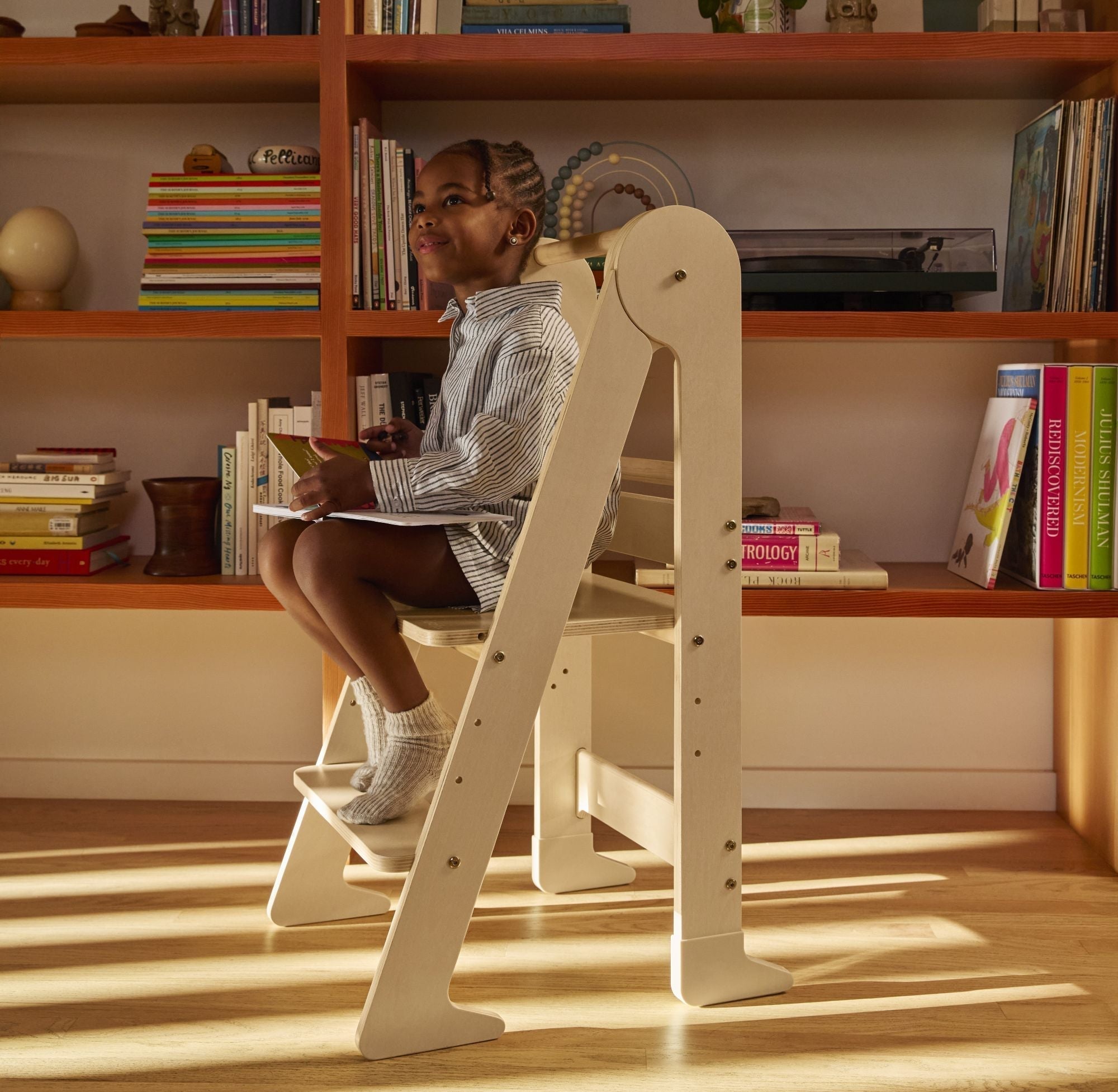

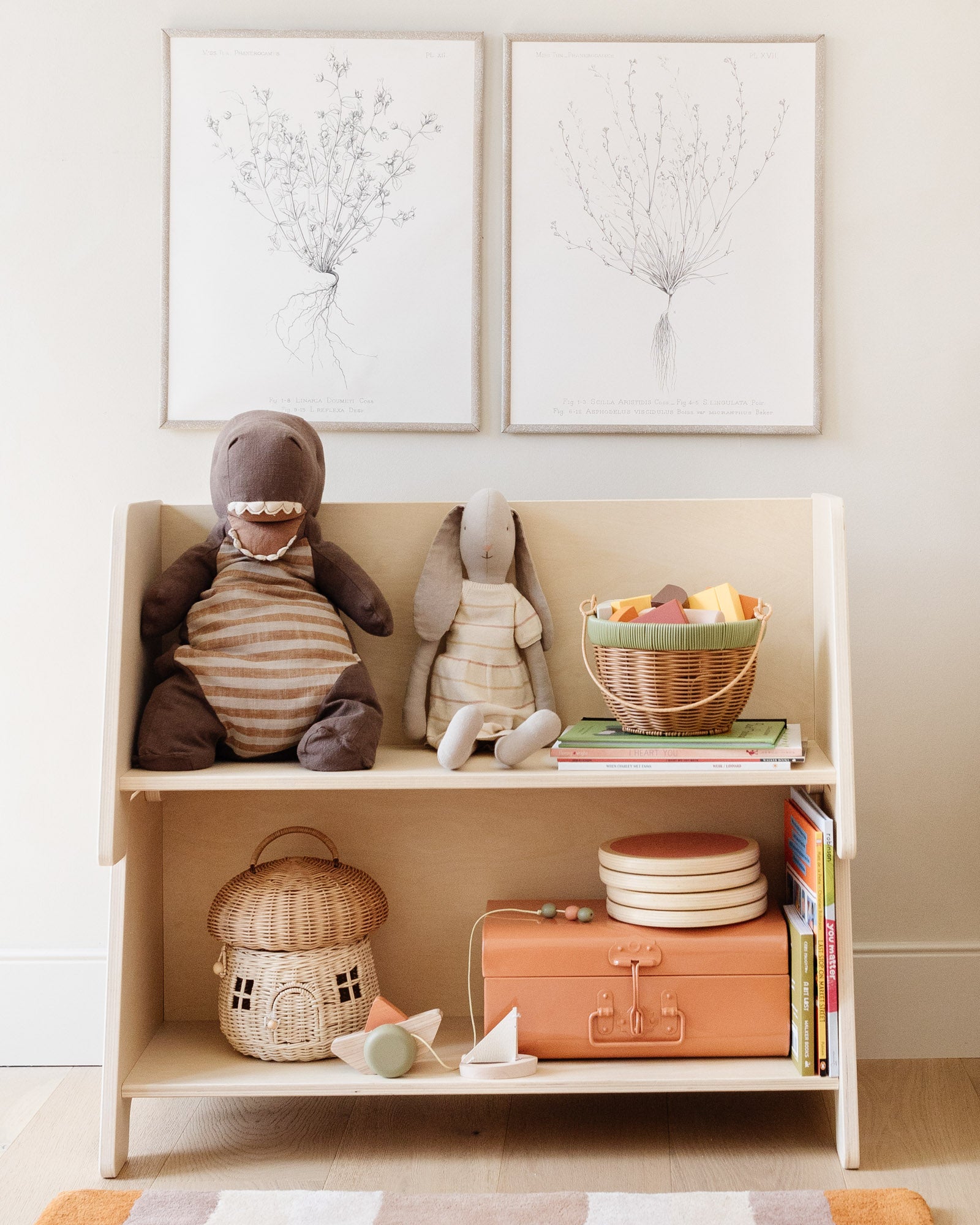
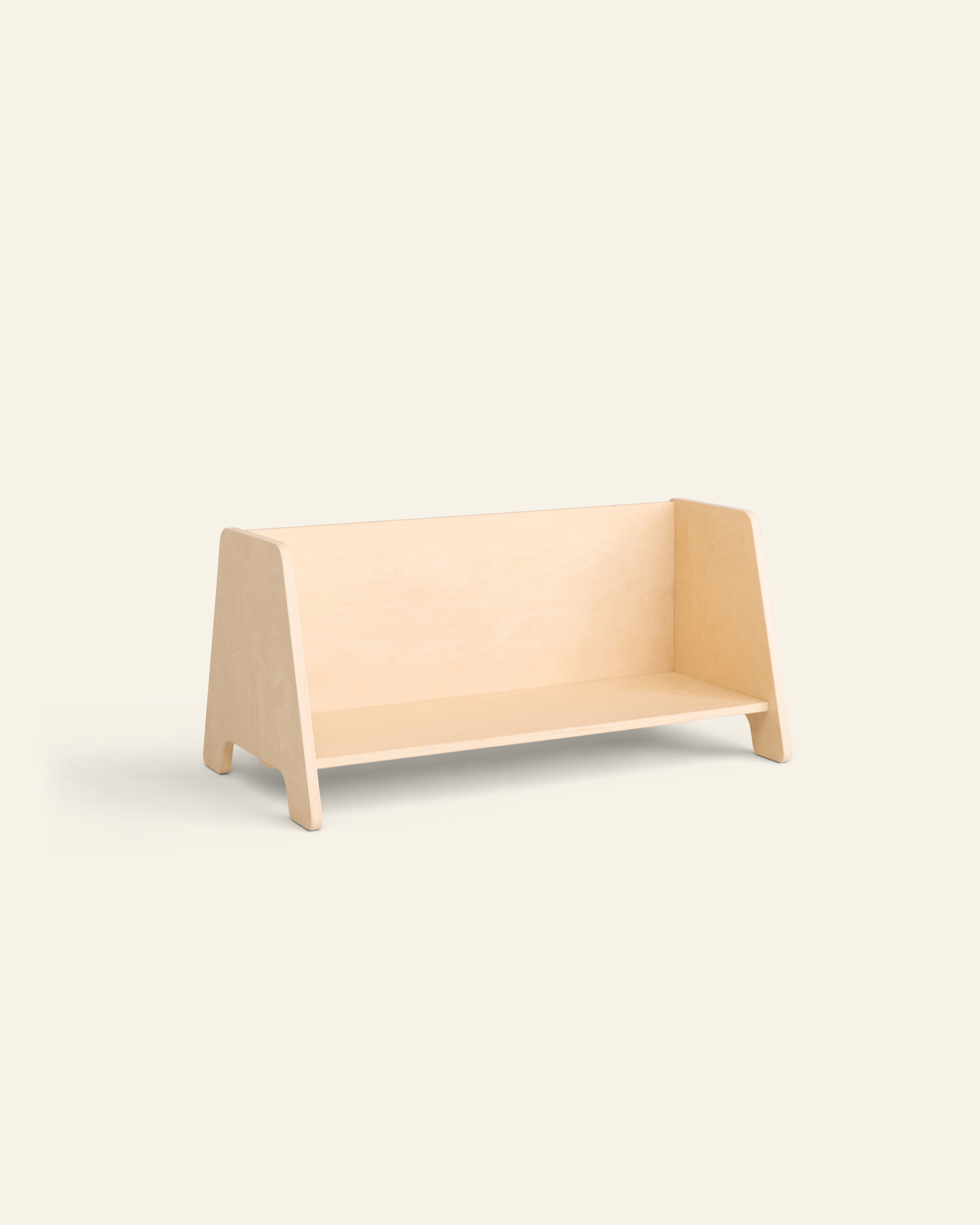
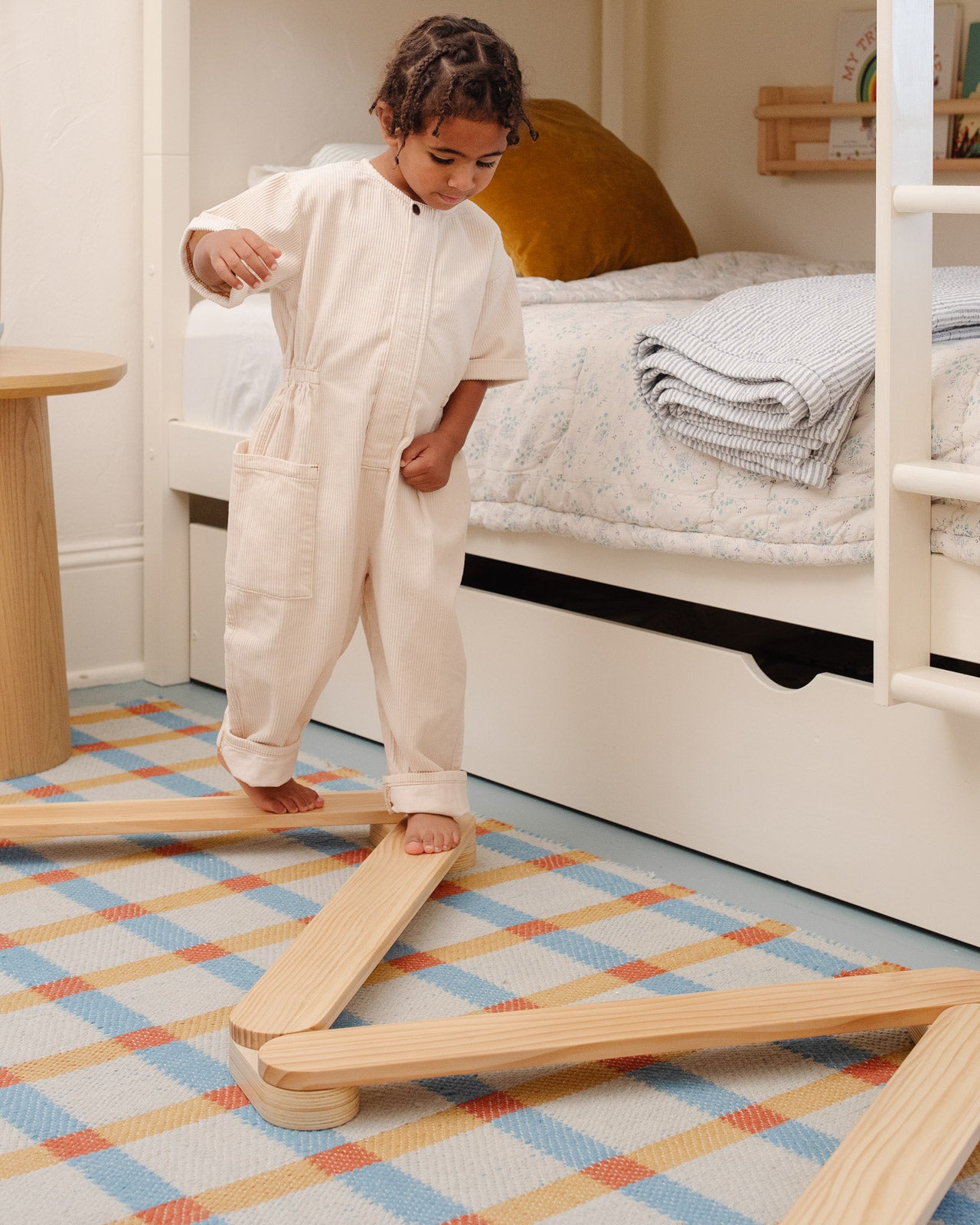
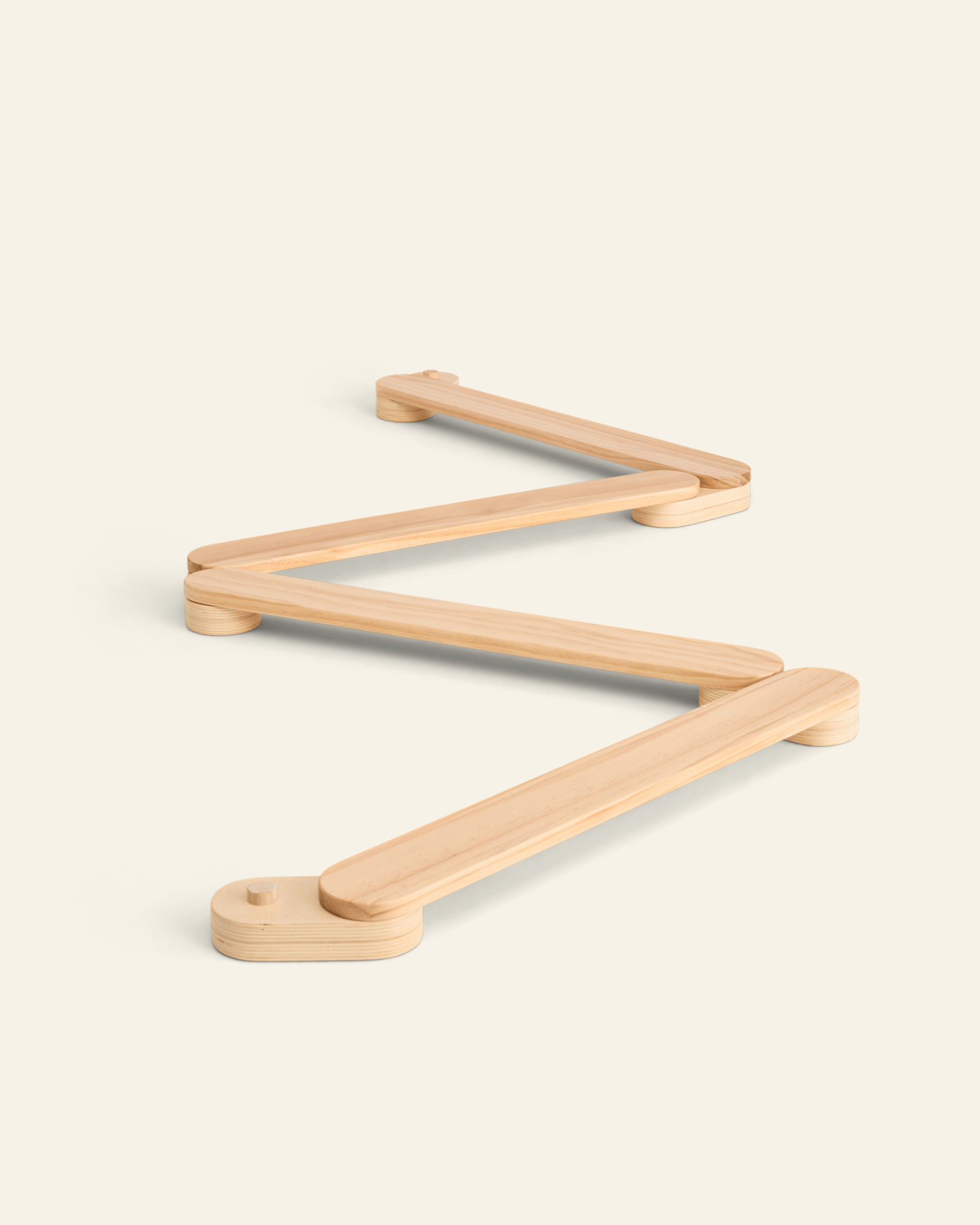
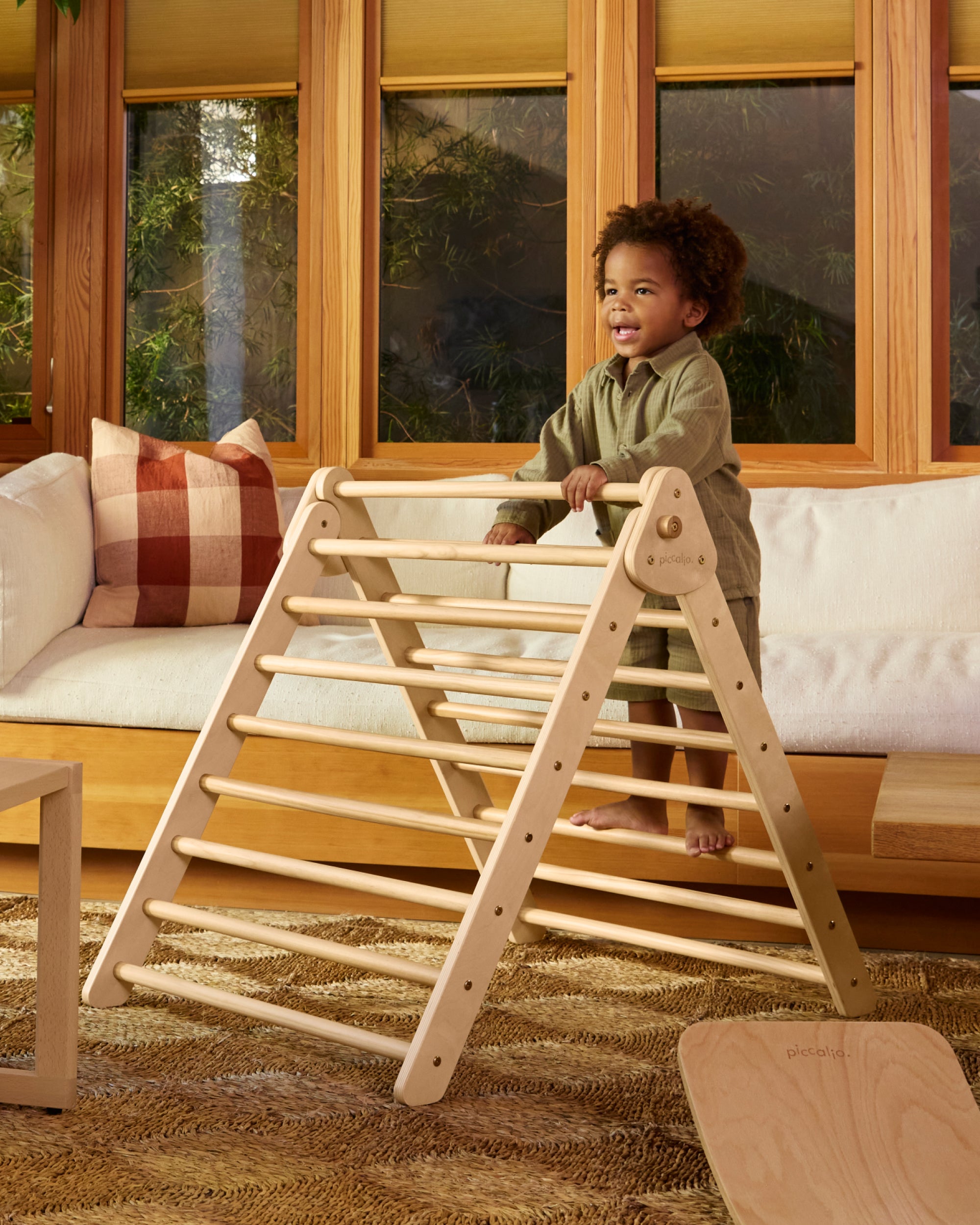
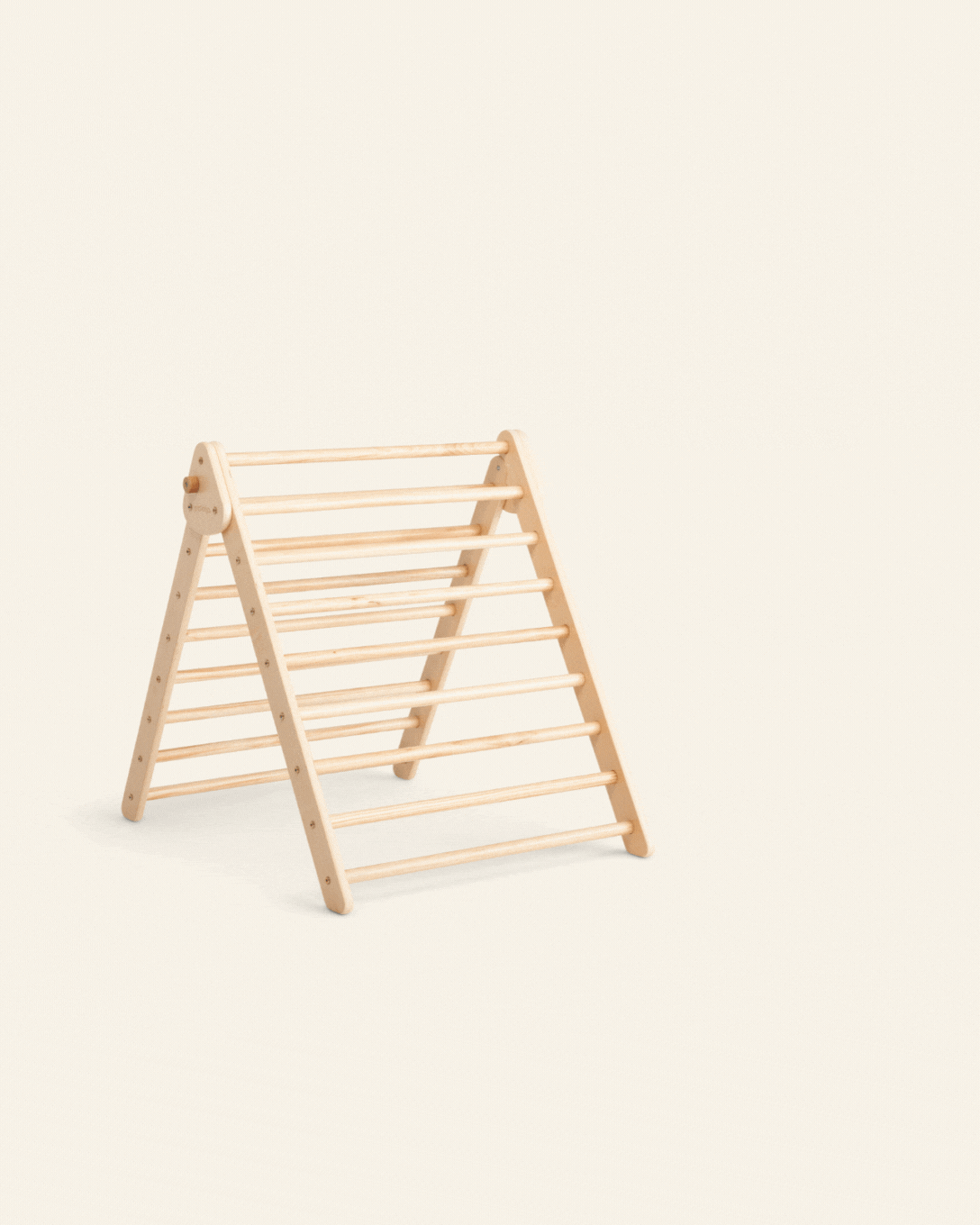
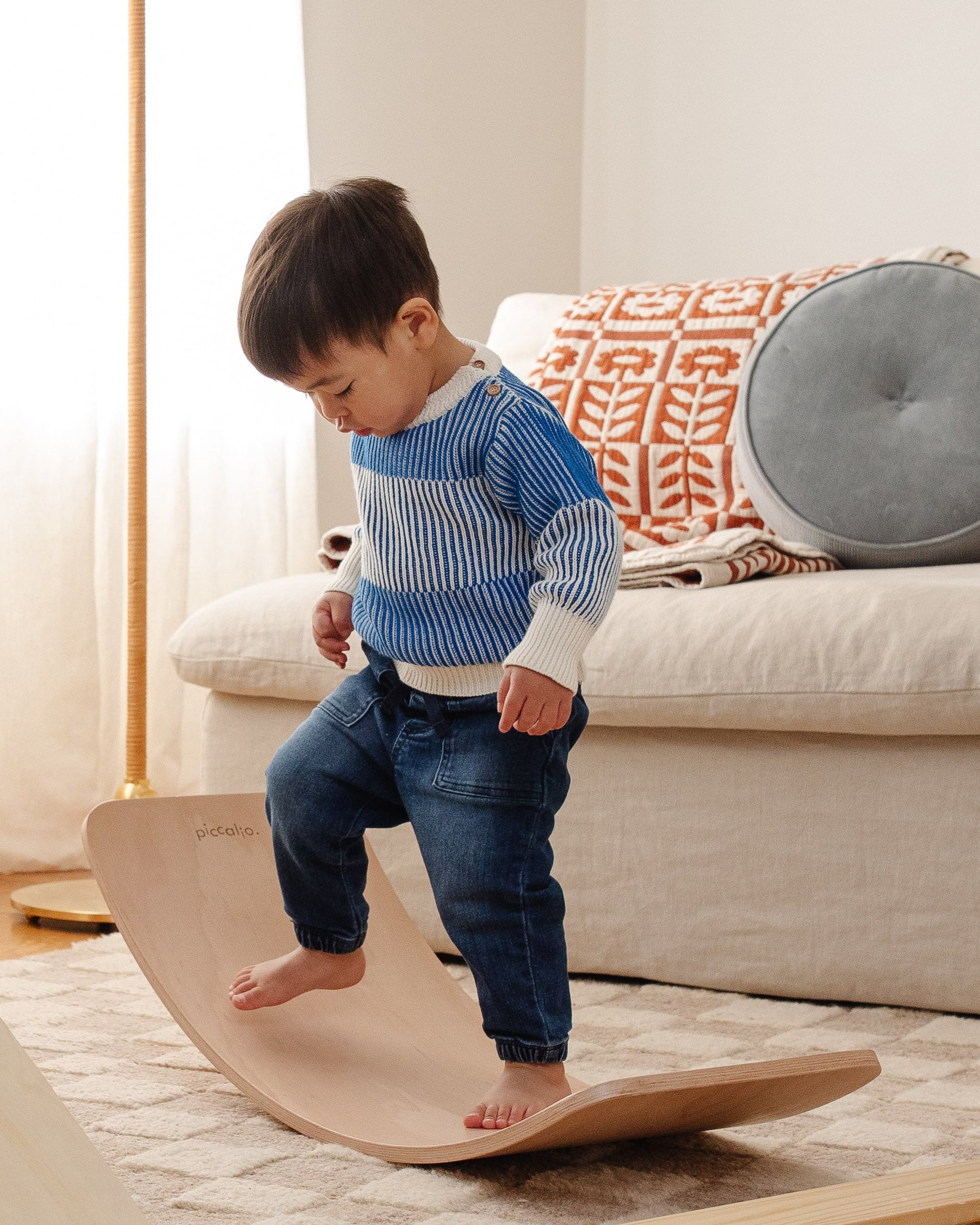

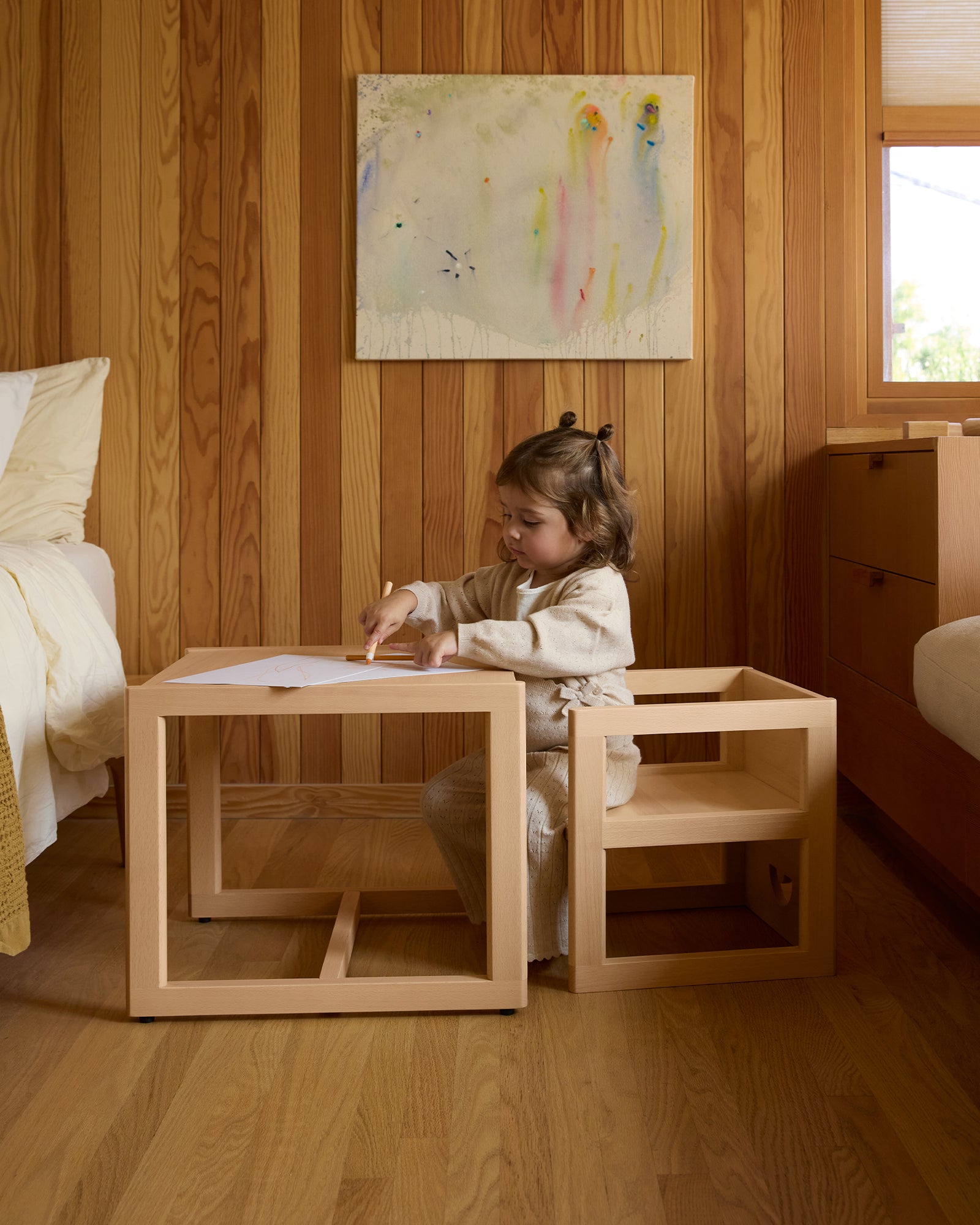
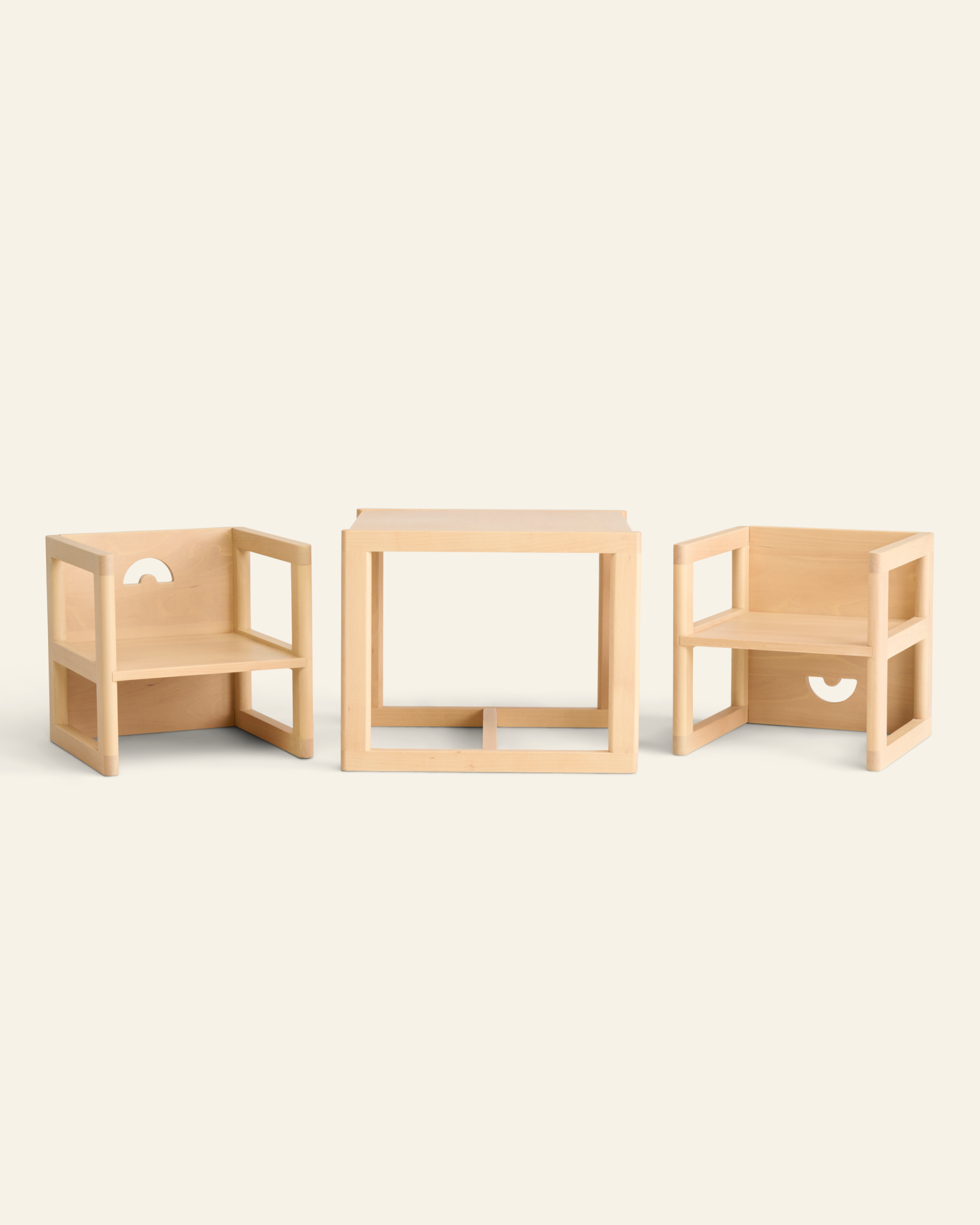
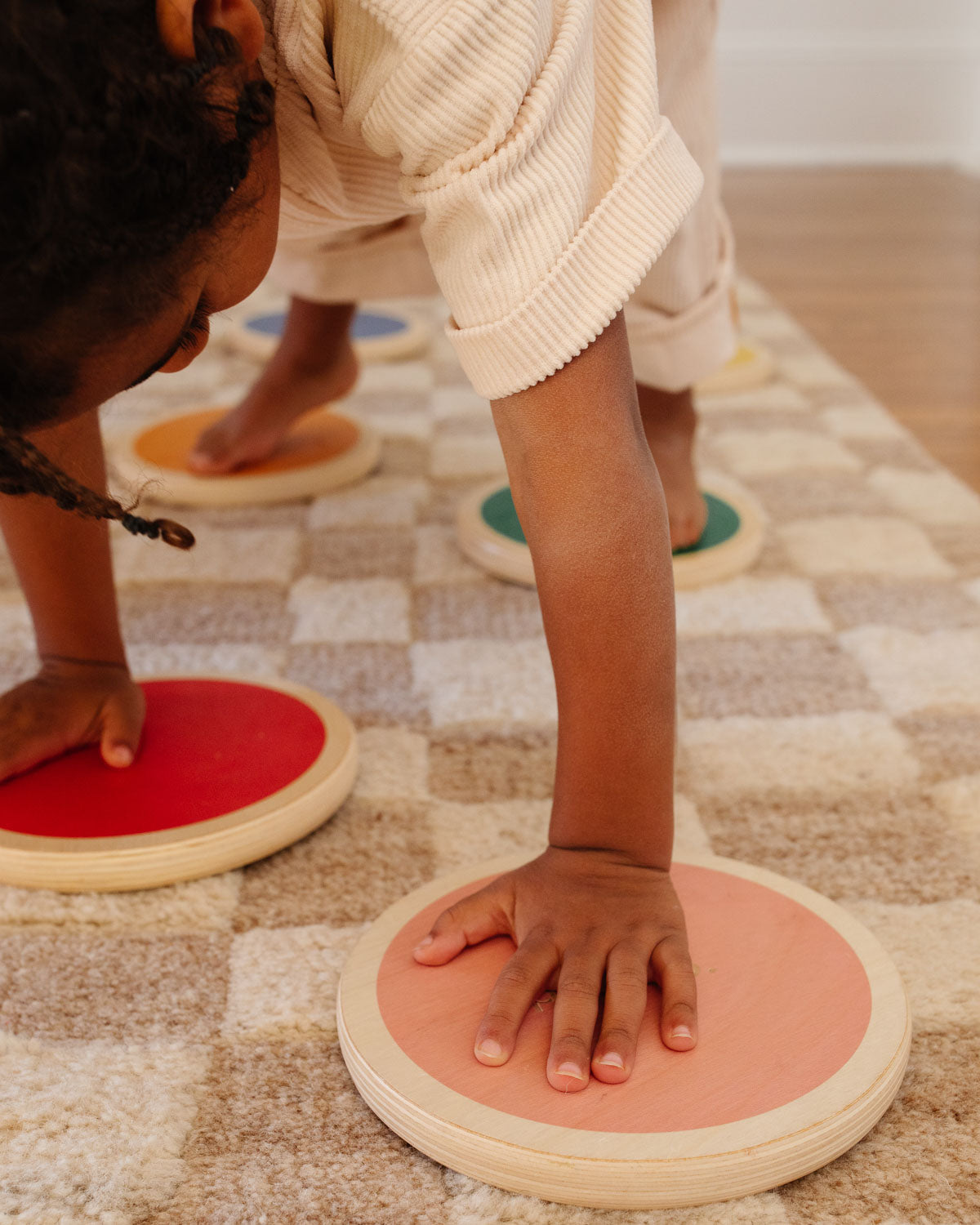
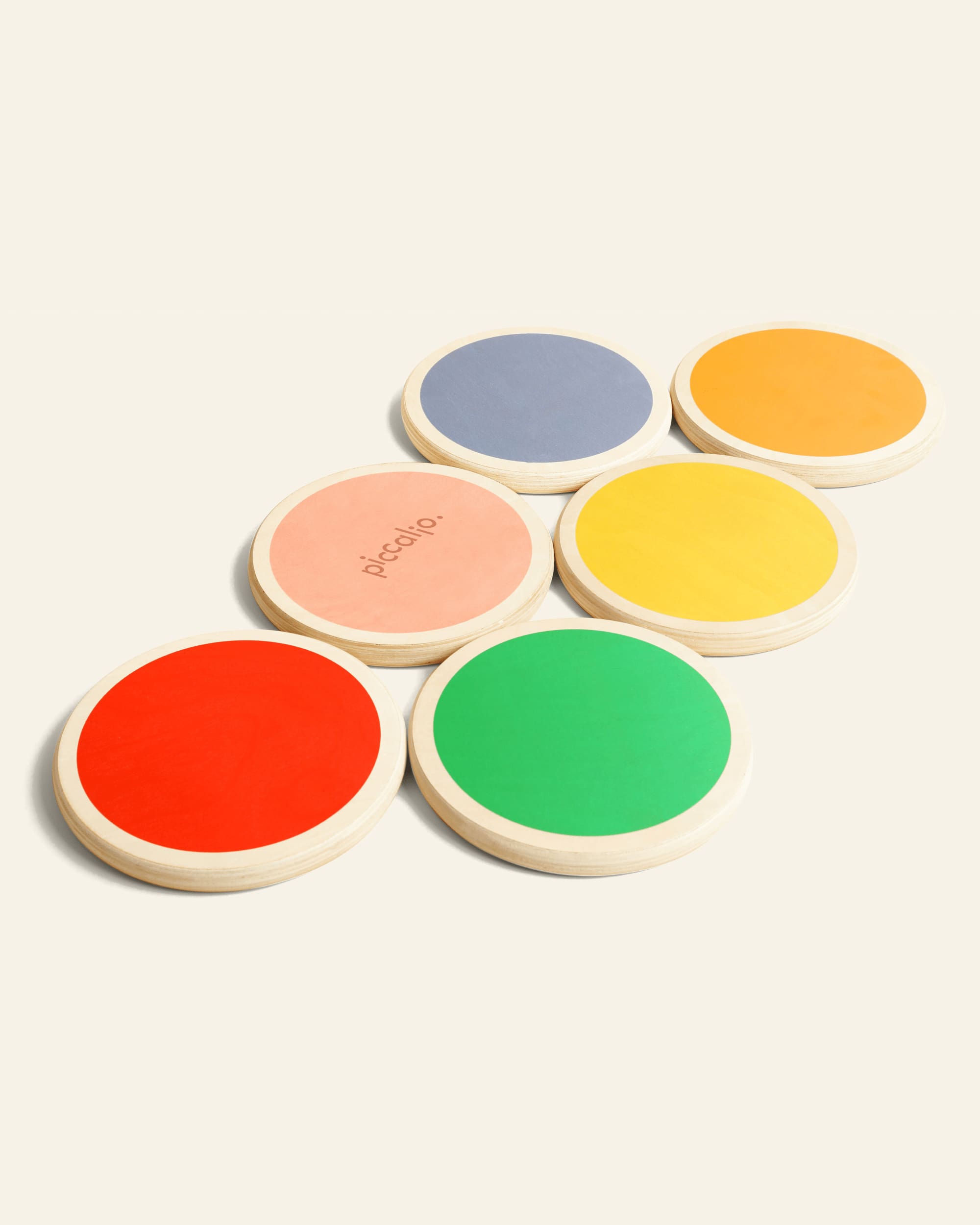
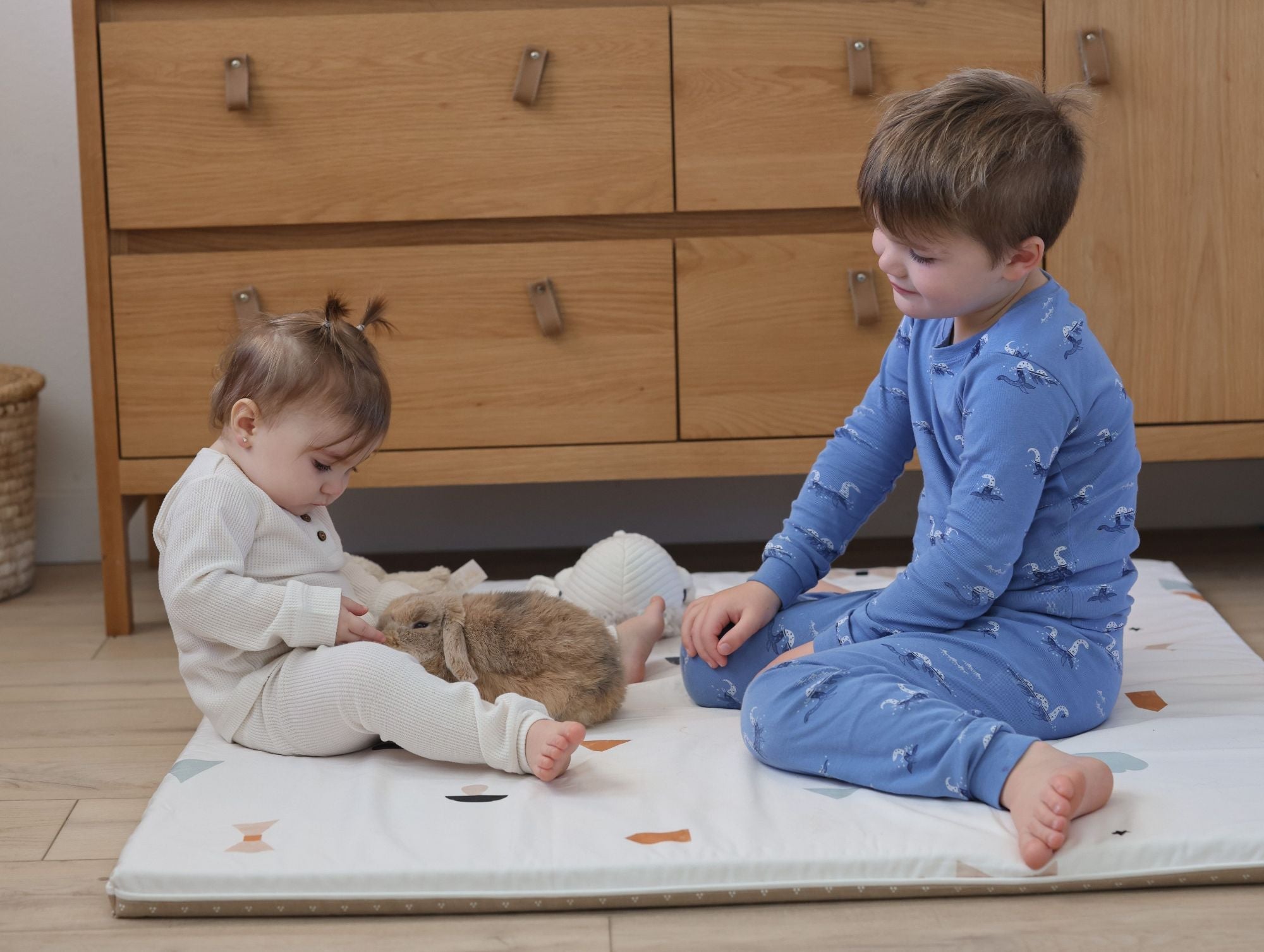
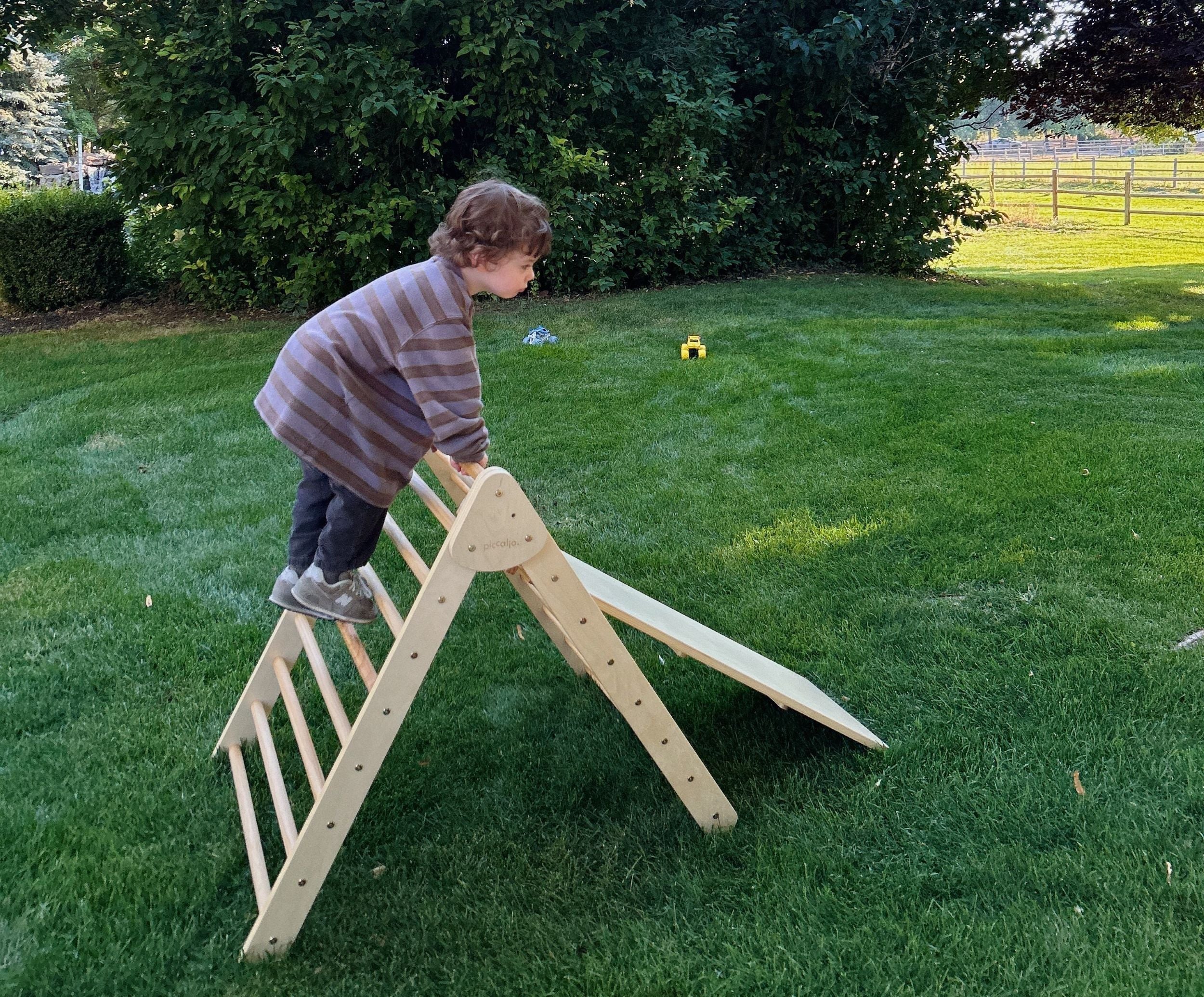
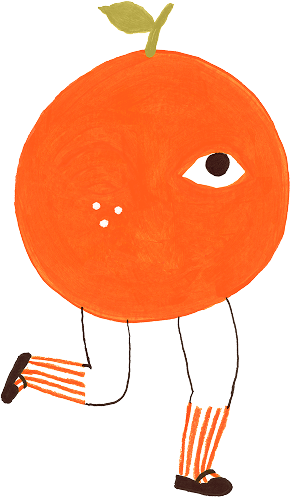

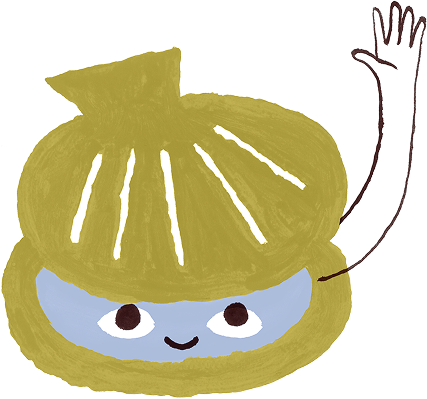
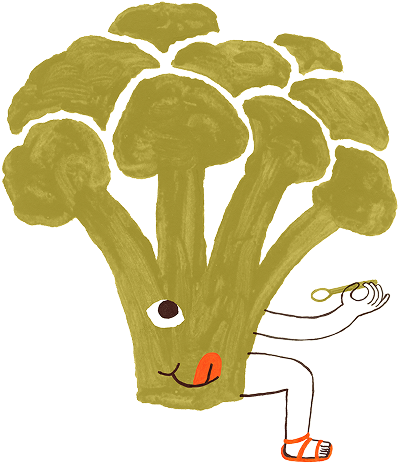
Leave a comment
This site is protected by hCaptcha and the hCaptcha Privacy Policy and Terms of Service apply.